Posted on September 16, 2010 by zthot
zTHOT for the day: We don’t always need good news, sometimes good advice will do.
will do.
Alicia Munnell, former economics advisor to President Clinton, has some advice for those heading for retirement:
Is a government option annuity a good idea?
It’s very hard to figure out how much of your nest egg to withdraw each year when you don’t know how long it has to last. Turning some of your savings into annuity income, which never runs out, would be good.
 But people in the United States generally hate annuities. They like their piles of money, and they don’t want to give them up for flows of income. It’s partly irrational, but not entirely. Annuities tend to be expensive. So we have to be careful that the offerings are reasonably priced.
But people in the United States generally hate annuities. They like their piles of money, and they don’t want to give them up for flows of income. It’s partly irrational, but not entirely. Annuities tend to be expensive. So we have to be careful that the offerings are reasonably priced.
I can see a federal role in backing annuities. Especially after the AIG debacle, consumers will have to be persuaded that if they buy an annuity, they’re not running a high risk their money will disappear.
Now that the real estate bubble has burst, what role do you see for homes in retirement planning?
Homes are going to be a solid asset, but not with a really high return, just as they were 20 years ago. That said, housing is still the major asset that most middle-income families own. It’s probably bigger than anything other than their Social Security benefit. In the past, people didn’t want to tap their home for income, but that’s going to be a luxury they can no longer afford.
than anything other than their Social Security benefit. In the past, people didn’t want to tap their home for income, but that’s going to be a luxury they can no longer afford.
You can downsize and move to a cheaper area, but people have enormous emotional connections to their homes. That leaves reverse mortgages. But the options we have now are clunky and expensive. We need a vehicle that allows people easier access to their home equity. This is an area where financial innovation would be very useful.
You’ve been a big advocate of working longer.
Finding or staying in a job is tough today, so I feel a little self-conscious saying this. But it’s really  good to keep working if you can. By taking Social Security benefits at 70 instead of 62, you’ll get 75% more. And if your earnings keep rising, your benefit could be twice as high.
good to keep working if you can. By taking Social Security benefits at 70 instead of 62, you’ll get 75% more. And if your earnings keep rising, your benefit could be twice as high.
Having a higher monthly benefit that’s inflation-adjusted and lasts as long as you live is a wonderful thing. Your 401(k) will also have more time to grow. And you’ll have a shorter retirement, so your nest egg won’t need to last as long.
More people now say they’ll work longer. But many still end up retiring early. Some are laid off or become ill. Too often, though, people simply get mad at their boss, or they get fed up after a long business trip. So they pack it in, and then they’re stuck with their decision.
If you can get used to the idea of working longer, and manage to stay on the job, it will be good for you, and we, as a society, will be better off.
Raising the retirement age for full benefits to 70 or higher is something that’s being talked about a lot now.
It should be on the table. We are living longer, and jobs are less physical, so we can work longer. The age for full benefits has been pushed to 67 from 65. So it makes sense to index the age of full benefits to longevity in the future.
There are some problems with doing that, however. One, about half of those claiming benefits claim early, at 62. So if the full-benefits age goes up, the early-retirement age has to rise too.
zTHOT: Time for some heavy duty decisions.
Filed under: Uncategorized | Leave a comment »
Posted on September 15, 2010 by zthot
 zTHOT for the day: It’s disappointing when a so-called financial expert spouts poppycock.
zTHOT for the day: It’s disappointing when a so-called financial expert spouts poppycock.
Warren Buffett expressed his confidence in the U.S. economy and ruled out the possibility of a double-dip recession, according to a published report.
“I’m a huge bull on this country,” said the Omaha-based billionaire investor and philanthropist, speaking via video connection to the Montana Economic Development Summit.
“We will not have a double-dip recession at all,” he said. “I see business coming back almost across the board.” (And you see this where, Mr. Buffett?)
the board.” (And you see this where, Mr. Buffett?)
Buffett told the assembly that American banks had become more open to lending again and he encouraged entrepreneurs to seek financing. (Has anyone experienced that? Anywhere?)
“It’s night and day from a year, year and a half ago,” he said, according to the Bloomberg report. “I know Wells Fargo, they would love to have $50 billion more of loans now. Go 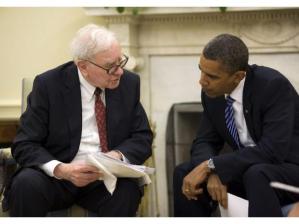 in and talk to the banker.” (When you can’t even get a simple loan modified without performing like a circus monkey, he says banks are lending?!?!)
in and talk to the banker.” (When you can’t even get a simple loan modified without performing like a circus monkey, he says banks are lending?!?!)
Buffett’s investment company Berkshire Hathaway Inc. has a multi-billion dollar stake in Wells Fargo. (Oh, now I see the reason for touting Wells Fargo.)
Buffett always appeared to be a smart and wise man. Now he just seems to be pandering to the administration, and the market, for his own benefit.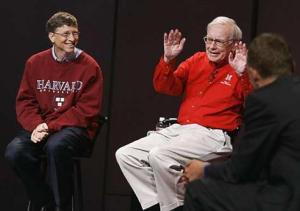
zTHOT: Money talks, and people with money love to talk.
Filed under: Uncategorized | Leave a comment »
Posted on September 14, 2010 by zthot
 zTHOT for the day: One good thing that may come out of this recession is more practical education.
zTHOT for the day: One good thing that may come out of this recession is more practical education.
The Wall Street Journal reports on a survey they conducted among top corporate recruiters whose companies hired more than 43,000 new graduates last year.
The key question: Which schools make up their top picks and why.
“Recruiters say graduates of top public universities are often among the most prepared and well-rounded academically, and companies have found they fit well into their corporate cultures and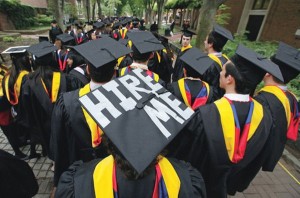 over time have the best track record in their firms.”
over time have the best track record in their firms.”
After all the Ivy League hype, who would have thought that it’s the public universities that produce the most well rounded future employees? It makes sense if you think about it. The kids going to public universities are generally going there because they know they will have to work for a living. They aren’t doctorate focused. They want the basics and then want to get out there and go for it.
The survey also revealed that employers like schools where they can form partnerships that allow them to work with professors and their students. This gives them an inside track when it comes time for internships and jobs.
 Corporate budget constraints also play a role. Campus recruiting is expensive and companies want to narrow down the selection process.
Corporate budget constraints also play a role. Campus recruiting is expensive and companies want to narrow down the selection process.
The Wall Street Journal survey had a key goal, and that was to find the top schools and majors that lead jobs that are satisfying, well paid and have growth potential.
The top 5 schools and sample recruiter comments:
-
Penn State: “Bright, well-rounded students . . . with the core competencies we desire.”
-
Texas A&M: “Proximity to key operations, quality of candidates and breadth of programs which match our recruiting needs.”
-
University of Illinois at Urbana: “Graduates . . . perform well and tend to stay with the company.”
-
Purdue University: “Longstanding relationships, great deal of executive involvement, well-rounded programs.”
-
Arizona State: “Strong ties between our employees and the professors.” 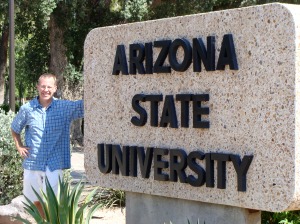
The remaining 20 schools in order:
-
University of Michigan
-
Georgia Institute of Technology
-
University of Maryland, College Park
-
University of Florida
-
Carnegie Mellon University
-
Brigham Young University
-
Ohio State University
-
Virginia Polytechnic Institute
-
Cornell University
-
University of California, Berkeley
-
University of Wisconsin
-
University of California, Los Angeles
-
Texas Tech University
-
North Carolina State University
-
University of Virginia
-
Rutgers University
-
University of Notre Dame
-
Massachusetts Institute of Technology
-
University of Southern California
-
Washington State University tied with University of North Carolina at Chapel Hill
zTHOT: It’s nice when common sense rules. Sounds like Arizona State might be a more practical choice than Harvard.
Filed under: Uncategorized | 2 Comments »
Posted on September 13, 2010 by zthot

zTHOT for the day: New days cannot be compared to the old days.
The role of unions is probably over. They are not accomplishing anything but running companies into the ground. We are living in a “take it or leave it” world. If we want things made in the U.S.A., everyone needs to sacrifice. That includes workers. It also means hard times ahead.
Harley-Davidson employees in Wisconsin are being asked to vote in favor of a labor contract that will freeze their pay, slash hundreds of jobs and hand large volumes of work to part-time workers.
 As bleak as the proposal sounds, employees may have little choice but to accept it. If they don’t, Harley-Davidson Motor Co. has threatened to move its last two Wisconsin operations to another state, leaving about 1,350 employees out of work. That is a hardcore decision, but it’s the kind of decision that has to be made in today’s market.
As bleak as the proposal sounds, employees may have little choice but to accept it. If they don’t, Harley-Davidson Motor Co. has threatened to move its last two Wisconsin operations to another state, leaving about 1,350 employees out of work. That is a hardcore decision, but it’s the kind of decision that has to be made in today’s market.
Employees are scheduled to vote on the proposed seven-year contract today. The results should be available by this evening.
The company blames its hardball tactics on finances. It says labor costs at its Milwaukee and Tomahawk plants are too high and it only makes sense to keep them open if the workers agree to labor concessions.
Employees acknowledge the tough economic climate but said Harley is turning its back on longtime loyal workers. However, many companies have had to turn their backs on long time workers. Why would Harley be any different?
would Harley be any different?
A number of items in the proposed contract — which the company called its lone and final offer — could give workers pause. And it should. If unions don’t accept the offer, they will cut their nose to spite their face.
At least 200 jobs would be slashed in Milwaukee and about 75 jobs could be cut in Tomahawk in northern Wisconsin. The company could then bring in temporary, or “casual,” workers, to work at about half the hourly rate and with virtually no benefits.
Most long-term workers also would be subject to a seven-year wage freeze, although there are  provisions for tentative raises in the final two years. A wage freeze, however, is better than no job. At least Harley isn’t shipping jobs overseas.
provisions for tentative raises in the final two years. A wage freeze, however, is better than no job. At least Harley isn’t shipping jobs overseas.
Even though workers may be disappointed by the contract, Harley’s three unions have encouraged them to approve it — perhaps because they have little leverage.
Harley made no secret of the fact that it’s been scouting out replacement facilities in other states. Harley spokesman Bob Klein has declined to say which sites — or how many — were under consideration, but after union officials revealed Kansas City, Mo., was a possibility, Klein confirmed it was one option.
Klein said depending on how the votes turn out, the company could decide its next steps as early as Tuesday.
Even if Harley moves one or both of its production facilities out of Wisconsin, its headquarters will  stay in Milwaukee. That would be little consolation to displaced workers — and to the city of Milwaukee, which has embraced Harley-Davidson since its founders built their first motorcycle here 107 years ago.
stay in Milwaukee. That would be little consolation to displaced workers — and to the city of Milwaukee, which has embraced Harley-Davidson since its founders built their first motorcycle here 107 years ago.
zTHOT: It’s another sign of the times. Regretfully, we will see more of this kind of news.
Filed under: Uncategorized | Leave a comment »
Posted on September 12, 2010 by zthot
 zTHOT for the day: Today let us focus on a few books that can feed our souls.
zTHOT for the day: Today let us focus on a few books that can feed our souls.
To counter talk about books that some want to burn, today let’s look at a few books that may bring you a deeper understanding of who God is.
Extra deep perspective. “Waiting for God” by Simone Weil. Simone Weil was a brilliant French woman born in 1909. She was a teacher of philosophy as well as a seeker of truth. “For nothing among human things has such power to keep our gaze fixed ever more intensely upon God, than friendship for the friends of God.”
Dangerous reading. “Freedom of Simplicity” by Richard J. Foster. “At the heart of the sin of covetousness is the inner lust to have. The moment things have priority, radical obedience becomes impossible.”
Joyful, easy reading. “The Applause of Heaven” by Max Lucado. “Does God ever refuse to rotate the earth because his feelings are hurt? No. His is a joy which consequences cannot quench. His is a peace which circumstances cannot steal. There is a delicious gladness that comes from God. And it is within your reach. You are one decision away from joy.”
The better story. “The Story of the Trapp Family Singers: The Story Which Inspired The Sound of Music” by Maria Augusta Trapp. As she was leaving the convent, “When I stepped from the cool archway into the centuries-old graveyard, my eyes, half blinded by tears and the bright sunshine, fell upon the inscription of a weathered gravestone, crooked with age: God’s Will Hath No Why.”
The best on Jesus. “Life of Christ” by Fulton J. Sheen. “Herod will forever be the model of those who make inquiries about religion, but who never act rightly on the knowledge they receive. What men ask about Divinity is never as important as why they ask it.”
Astounding novel. “The Heartbreaker” by Susan Howatch. Outstanding writing combines with a  story that is touted as both gripping and a moral thriller. It is both. “I feel clearer now about the tragedy. I know now that God’s not just out there lolling idly in front of his canvas. He’s in a muck sweat, painting away to save the picture, and although my family was blasted apart by the thwack of the creative process, the creator himself can’t rest until he’s brought us back into the right pattern.”
story that is touted as both gripping and a moral thriller. It is both. “I feel clearer now about the tragedy. I know now that God’s not just out there lolling idly in front of his canvas. He’s in a muck sweat, painting away to save the picture, and although my family was blasted apart by the thwack of the creative process, the creator himself can’t rest until he’s brought us back into the right pattern.”
Critical for today. “The Wounded Healer” by Henri Nouwen. “The contemplative . . . constantly invites his fellow man to ask real, often painful and upsetting questions, to look behind the surface of smooth behavior, and to take away all the obstacles that prevent him from getting to the heart of the matter . . . he takes away the illusory mask of the manipulative world and has the courage to show what the true situation is.”
that prevent him from getting to the heart of the matter . . . he takes away the illusory mask of the manipulative world and has the courage to show what the true situation is.”
zTHOT: We may want to burn some books, but we should also be willing to read some.
Filed under: Uncategorized | Leave a comment »
Posted on September 11, 2010 by zthot
 zTHOT for the day: We are now used to living in a post-9/11 world.
zTHOT for the day: We are now used to living in a post-9/11 world.
A day we will never forget.
There were many heroes on 9/11. Among them were the pilots.
At 9:00AM on September 11, United Airlines sent all pilots a warning message regarding the other hijackings. United Flight 23 was still on the runway. The captain decided on his own not to take off. He faked a mechanical problem and returned to the gate!
When the passengers were asked to exit the plan three Middle Eastern men, or possibly as many as six, refused to follow the request to deplane. Security was called but the men fled before they arrived. Later, authorities checked their luggage and find copies of the Koran and al-Qaeda instruction sheets. A hijack diverted?!
Heroes to the North.
On September 11, 2001, 39 heavy aircraft were diverted to Gander International Airport in Newfoundland when airspace was closed in the United States because of the terrorist attacks.
Runway 13/31 at that airport was converted to a temporary aircraft parking ramp.
A little known story is that the airport terminal was turned into an aid center. Food and clothing were distributed to stranded passengers. The airport and its surrounding community afterwards received high praise for their response to the tragedy.
All of a sudden Gander’s 10,000 residents had 7,000 guests. Newfoundlanders opened their schools, homes, and wallets. The people of that city welcomed the stranded passengers with food and hospitality.
Heroic actions of unsung air traffic controllers.
 That day, 5,000 commercial flights were grounded within three hours with an estimated one million passengers with no preparation or plan, but with quick decisions and experienced judgments. In the entire history of air travel, that had never been done!
That day, 5,000 commercial flights were grounded within three hours with an estimated one million passengers with no preparation or plan, but with quick decisions and experienced judgments. In the entire history of air travel, that had never been done!
This is a day that memorializes one of the most tragic days in American history. Despite the hard times we are currently facing, may we be grateful for our freedom and our lives.
zTHOT: May God continue to bless America.
Filed under: Uncategorized | 1 Comment »
Posted on September 10, 2010 by zthot
 zTHOT for the day: It is thrilling to hear that anyone is getting a job in this market. But a drop in claims does not change reality.
zTHOT for the day: It is thrilling to hear that anyone is getting a job in this market. But a drop in claims does not change reality.
The job market is still now out of the woods. The following is from Reuters.
The number of U.S. workers filing new claims for unemployment insurance unexpectedly rose to its highest level in close to six months, a fresh signal of a weak jobs market.
The number of new claims for jobless benefits rose 2,000 to 484,000 in the week ended August 7, the second straight increase, Labor Department data showed on Thursday.
“This is not a good number,” said John Brady, an analyst at MF Global in Chicago. “Claims are going the wrong way. That has the market concerned.”
The data comes two days after the Federal Reserve downgraded its assessment of the economy’s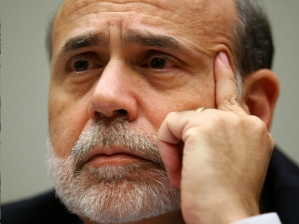 health and said it would take steps to ensure its support for the fragile economic recovery does not wane.
health and said it would take steps to ensure its support for the fragile economic recovery does not wane.
The jobless claims data is the latest in a series of releases that indicate the pace of the economic recovery is slowing.
Economists have been ratcheting down estimates for second-quarter economic growth after data on trade and inventories for June suggested it was not as strong as earlier thought.
The government estimated last month the economy advanced at a 2.4 percent annualized pace in the April-June quarter, far more slowly than the 3.7 percent pace of the first quarter, and now some 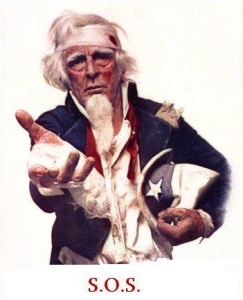 economists believe the economy may have grown at less than half that rate.
economists believe the economy may have grown at less than half that rate.
The Labor Department said separately that higher oil prices pushed prices for imported goods higher in July for the first time in three months, though at half the pace economists had expected.
Import prices rose 0.2 percent in July after falling 1.3 percent in June and a revised 0.8 percent in May. That left the three-month cumulative total down 2.0 percent, the largest decline since the three months ended February 2009.
Economists polled by Reuters had expected import prices to rise 0.4 percent in July.
The four-week moving average of unemployment claims, which economists prefer because it smoothes out weekly fluctuations, rose 14,250 to 473,500, also the highest level since the week ended Feb. 20.
Economists polled by Reuters had expected claims in the latest week to fall to 465,000 from the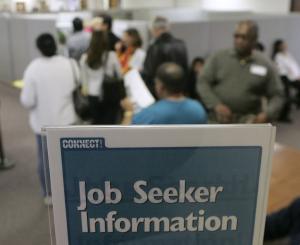 previously reported 479,000.
previously reported 479,000.
The number of people still collecting unemployment benefits after an initial week of aid in the week ended July 31 fell 118,000 to 4.45 million, the lowest level since late June.
Economists had expected 4.53 million. The four-week moving average of continuing claims fell 64,500 to 4.52 million, the lowest level since December 2008.
Prices for exported goods unexpectedly fell 0.2 percent in July after falling a revised 0.7 percent in the prior month.
The Reuters poll showed economists expecting a 0.1 percent increase in July.
Oil import prices rose 2.0 percent last month after falling for two months while prices excluding oil fell 0.2 percent.
 zTHOT: This constant hurrah everytime something moves an inch gets tiring.
zTHOT: This constant hurrah everytime something moves an inch gets tiring.
Filed under: Uncategorized | Leave a comment »
Posted on September 9, 2010 by zthot
 zTHOT for the day: May God work a miracle among us on September 11th.
zTHOT for the day: May God work a miracle among us on September 11th.
It is the opinion of this blog that a segment of the American population has lost its mind.
As we near the ninth anniversary of September 11, 2001, the idea of a mosque near Ground Zero has riled many. But as has been said before by zTHOT, with freedom of religion comes freedom of religion. It doesn’t matter what religion it is.
Should Muslims be more sensitive to the wishes of the people of New York in particular? Yes, of course they should. Do they need to be as sensitive as everyone is telling them to be? No they don’t. This is a free country. With freedom comes good and bad. Things we like and things we dislike.
Are all Muslims radical and do they desire our demise? Absolutely not. I know a good number of Muslims and you would never, ever categorize them in that manner.
of Muslims and you would never, ever categorize them in that manner.
Now to this person (I cannot call him a pastor) who is touting that September 11th be Burn A Koran Day. He is as much a “Christian” extremist as the radical Muslims who took down the Twin Towers.
For this pastor to call himself a Christian, first of all is ludicrous. Jesus, as the author of Christianity, would take all Muslims in His arms. He would woo them with His humility and deep love. He would not force them to believe Him; He would live His life in a manner that they would want to emulate.
 This pastor is not following the Jesus I follow. He is part of a lunatic fringe that has nothing better to do than to find a valid reason for why we fought in Iraq. Under the guise of seeking the security of our nation, they taunt each other with drastic possibilities that are supposed to take place under Muslim rule.
This pastor is not following the Jesus I follow. He is part of a lunatic fringe that has nothing better to do than to find a valid reason for why we fought in Iraq. Under the guise of seeking the security of our nation, they taunt each other with drastic possibilities that are supposed to take place under Muslim rule.
Why doesn’t this so-called pastor try to live under God’s rule? But no, from everything out there it appears he is trying to incite violence rather than promote the cause of Jesus Christ.
If there are members of this fringe out there, please remember that we are called to love our enemies. We are called to seek peace and not the sword. Jesus would not have sponsored the Crusades.
We are called to seek peace and not the sword. Jesus would not have sponsored the Crusades.
Finally, our president is not a Muslim. He is as he has stated, a Christian. He has an enormous job and rather than spreading rumors, we are called to pray for him. And we should be praying for him daily because he needs our support. We don’t have to agree on everything, but we are called to love.
So if the mosque is built, so be it. It is part of the pain and privilege of living in a free country. Personally, I believe God can use this to cause us to join hands with Muslims  and pray for peace. And I don’t think this is out of the realm of God’s possibility.
and pray for peace. And I don’t think this is out of the realm of God’s possibility.
zTHOT: Let peace on earth begin with me.
Filed under: Uncategorized | Leave a comment »
Posted on September 8, 2010 by zthot
 zTHOT for the day: A poll is like a photo. It’s just a point in time. But that point in time shows how you looked.
zTHOT for the day: A poll is like a photo. It’s just a point in time. But that point in time shows how you looked.
A Washington Post-ABC poll was just released. It was conducted by telephone between August 30 and September 2nd. So it is very recent. The following are a few of the results.
Do you approve or disapprove of the way Barack Obama is handling his job as president?
24% strongly approve
38% strongly disapprove
Do you approve or disapprove of the way Obama is handling (issues) the economy?
20% strongly approve
44% strongly disapprove
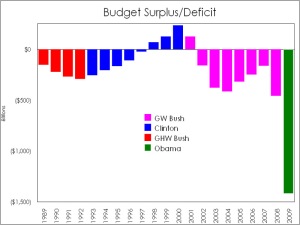 The federal budget deficit?
The federal budget deficit?
18% strongly approve
44% strongly disapprove
The situation in Iraq?
26% strongly approve
30% strongly disapprove
Do you approve or disapprove of the way the U.S. Congress is doing its job?
5% strongly approve
51% strongly disapprove
Overall, which party do you trust to do a better job in coping with the main problems the nation faces over the next few years?
40% Democrats
37% Republicans
Which political party do you trust to do a better job handling (issues) the economy?
42% Democrats
40% Republicans
Health care?
44% Democrats
40% Republicans
 Immigration issues?
Immigration issues?
37% Democrats
40% Republicans
The situation in Afghanistan?
38% Democrats
40% Republicans
The federal budget deficit?
38% Democrats
44% Republicans
Taxes?
39% Democrats
45% Republicans
Do you think Obama’s economic program is making the economy (better), making it (worse) or having no real effect?
having no real effect?
30% Better
33% Worse
36% No effect
If the Republicans took control of Congress, do you think their economic program would make the economy (better), make it (worse) or have no real effect?
32% Better
27% Worse
37% No effect
Which political party better represents your own personal values?
45% Democrats
42% Republicans
Which political party is more concerned with the needs of people like you?
48% Democrats
39% Republicans
Thinking about President Obama, please tell me whether the following statement applies to Obama, or not:
 He understands the problems of people like you. 50%-Yes 48%-No
He understands the problems of people like you. 50%-Yes 48%-No
He has brought needed change to Washington. 44% Yes 52%-No
He shares your values. 49%-Yes 50%-No
Right now, are you inclined to vote to re-elect your representative in Congress in the next election or are you inclined to look around for someone else to vote for?
31% Re-elect
58% Look around
This is a smattering of the results taken from those with strong feelings on a 5-point scale from strongly approve, somewhat approve, somewhat disapprove, strongly disapprove, no opinion.
One thing is clear, we may be a nation divided but not when it comes to throwing out the current “bums” in office!
zTHOT: It’s just a snapshot—but it certainly captures the current picture.
Filed under: Uncategorized | Leave a comment »
Posted on September 7, 2010 by zthot

zTHOT for the day: Is anyone on the same page in Washington?
The following is an edited and annotated version of an op-ed piece by Alan B. Krueger, the assistant secretary of economic policy.
Labor Day is an occasion to honor and celebrate American workers. The opportunity to work in a decent job gives people and society benefits beyond the income it generates. Conversely, unemployment causes workers and their families distress beyond their loss of income.
 Job growth was weak throughout the 2000s, and the past few years unquestionably have been difficult for American workers, as the financial crisis and subsequent recession destroyed jobs at an alarming rate. (Let’s see, throughout the 2000s—a little stab at the blame game?)
Job growth was weak throughout the 2000s, and the past few years unquestionably have been difficult for American workers, as the financial crisis and subsequent recession destroyed jobs at an alarming rate. (Let’s see, throughout the 2000s—a little stab at the blame game?)
When President Barack Obama took office, the country was losing 750,000 jobs a month, and more than 7.5 million jobs have been lost since the recession began in late 2007. Although the economy has started to recover and layoffs have declined from their peak, hiring remains too slow to provide enough jobs for the growing workforce.
Since day one, the Obama administration’s top priority has been to create the conditions needed for the private sector to create jobs for American workers. (Oh, is that was health care was all about?) 
These efforts include assisting states to retain teachers and pay Medicaid costs and the “cash for clunkers” program. (And we know how much “cash for clunkers” did for the auto industry!!)
A notable example of a targeted measure to boost the economy is the Hiring Incentives to Restore Employment, or HIRE, Act of 2010. (So in other words, nothing has been done.)
The HIRE Act exempts private employers from paying the employer portion of Social Security payroll taxes for newly hired workers who have been unemployed for 60 days or longer. As an added incentive, employers can receive up to an additional $1,000 tax credit for each of the newly hired workers they retain for 52 weeks. (Wow, small businesses did you hear that?! Start hiring and get that thousand bucks.)
 The HIRE Act expires at the end of this year, so employers have a stronger incentive to increase their hiring sooner rather than later. (That’s good news, it expires in 4 months.)
The HIRE Act expires at the end of this year, so employers have a stronger incentive to increase their hiring sooner rather than later. (That’s good news, it expires in 4 months.)
It is an example of the kind of temporary, targeted and responsible economic policy that has been the hallmark of this administration. (Oh yes. That’s for sure.)
Meanwhile, obviously speaking from another playbook, President Obama spoke to union families and proposed a $50 billion job creation program geared to build more roads, runways and railroad tracks. In other words more stimulus spending. I’m sure the unions loved it.
and proposed a $50 billion job creation program geared to build more roads, runways and railroad tracks. In other words more stimulus spending. I’m sure the unions loved it.
zTHOT: If our leaders aren’t even on the same page when it comes to solutions, what can we expect?
Filed under: Uncategorized | 2 Comments »
 will do.
will do. But people in the United States generally hate annuities. They like their piles of money, and they don’t want to give them up for flows of income. It’s partly irrational, but not entirely. Annuities tend to be expensive. So we have to be careful that the offerings are reasonably priced.
But people in the United States generally hate annuities. They like their piles of money, and they don’t want to give them up for flows of income. It’s partly irrational, but not entirely. Annuities tend to be expensive. So we have to be careful that the offerings are reasonably priced. than anything other than their Social Security benefit. In the past, people didn’t want to tap their home for income, but that’s going to be a luxury they can no longer afford.
than anything other than their Social Security benefit. In the past, people didn’t want to tap their home for income, but that’s going to be a luxury they can no longer afford. good to keep working if you can. By taking Social Security benefits at 70 instead of 62, you’ll get 75% more. And if your earnings keep rising, your benefit could be twice as high.
good to keep working if you can. By taking Social Security benefits at 70 instead of 62, you’ll get 75% more. And if your earnings keep rising, your benefit could be twice as high.














































